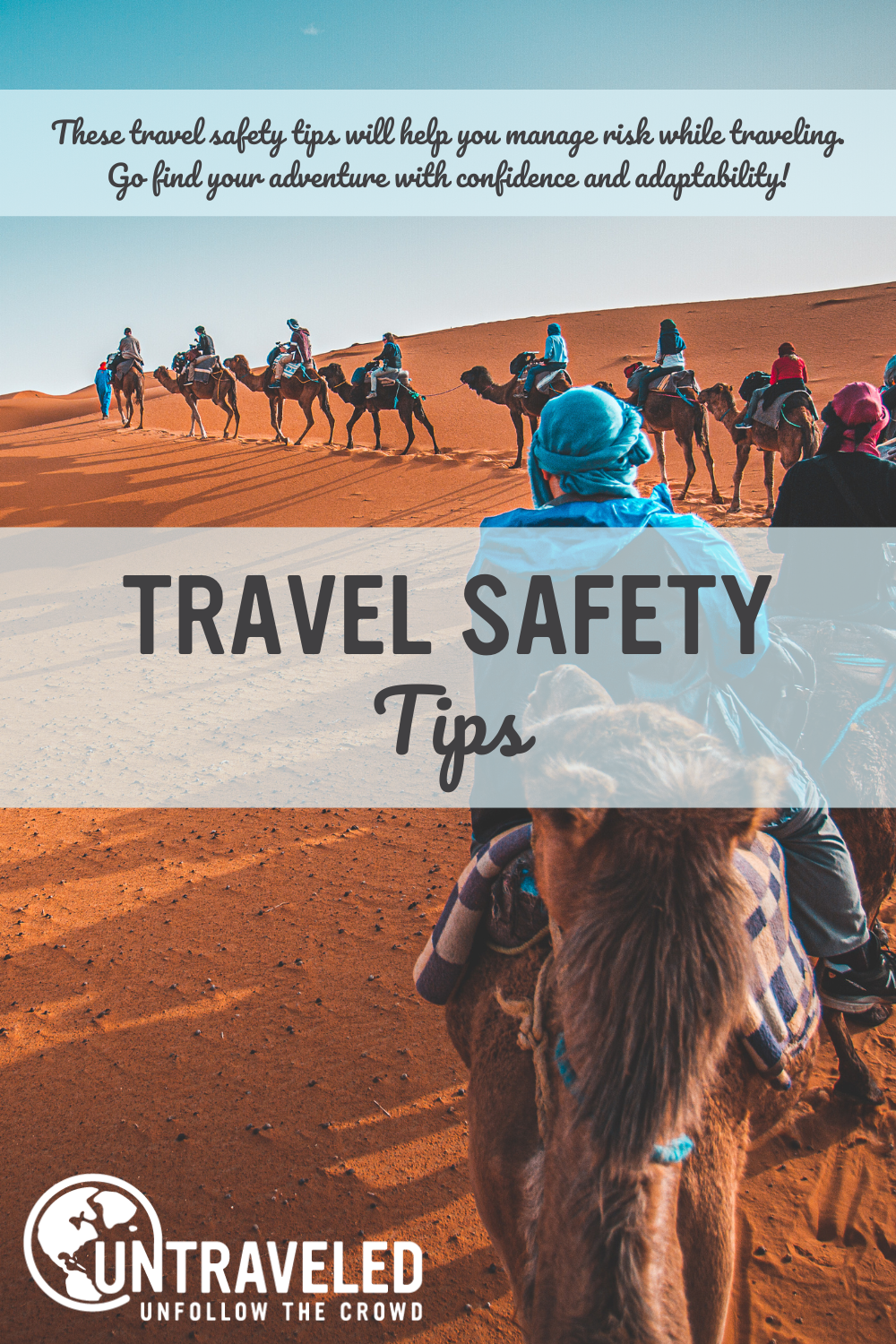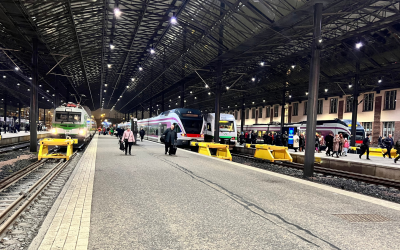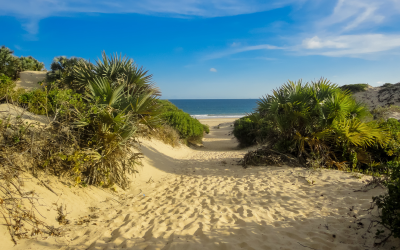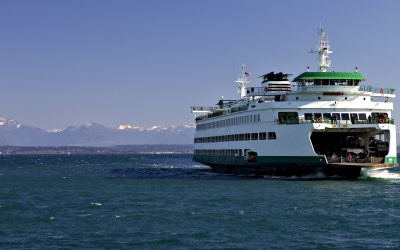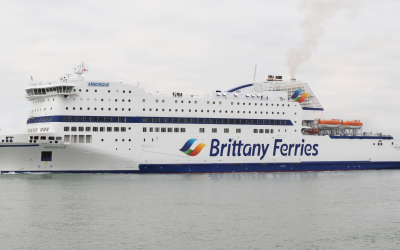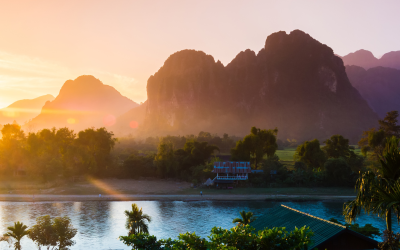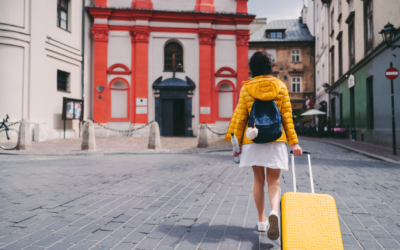Steps to take before your trip
1. Do your research
This is one of the most important travel safety tips! Before your trip, it’s great to do a bit of research on the area you will be traveling to. Do you need any special vaccinations for the area you will be traveling to? What is the local language, and is any English spoken there? Will you be able to drink the water? What is the local currency, and will you be able to use your credit card? What are the cultural differences between your country and the country you are traveling to? Knowing at least the basics will help you feel more comfortable and prepared for your adventure.
For current travel advisories and information, check out Travel.State.Gov and the CDC’s website for health-related information.
2. Let your bank know ahead of time
This travel safety tip doesn’t take long, and will help keep your account from being turned off “due to suspicious activity”. Each bank has a different policy, but you can usually let them know your travel plans through your online banking platform or by just giving customer service a call. If you will be traveling through several countries, make sure to give them a complete list. Being able to contact your bank while traveling is also important — in the case that your wallet or credit card is stolen, you can quickly alert them.
3. Consider purchasing travel insurance
While travel insurance isn’t a necessity, it can be very helpful in the event that you have medical expenses or need emergency evacuation while abroad. Depending on the travel insurance, you might also have trip cancellation, delay, or interruption coverages and coverage for bag loss or loss/stolen possessions. Each travel insurance is different, so make sure you understand what is covered with your plan, and what steps you need to take to be reimbursed should something occur on your travels.
Pro travel safety tip: Many credit cards have built in travel-protection (and occasionally rental car insurance) at no extra cost, so check with your credit card company before you spend extra on travel insurance that you might already have.

4. Make copies of all your important documents
It’s always a good idea to make a copy of your passport, driver’s license, and other important documents you may have. Along with bringing along a copy with you (stored in a different location than your hard copies), it is a good idea to scan these documents and upload them to a safe place, that way you will always have a way to access them.
5. Enroll in the Smart Traveler Program
The Smart Traveler Enrollment Program (STEP) is a free service that allows U.S. citizens and nationals traveling and living abroad to enroll their trip with the nearest U.S. Embassy or Consulate. This is a great way to receive up-to-date information and alerts about areas you may be traveling to or in. This program will also help the U.S. Embassy contact you in the case of a natural disaster, civil unrest, or family emergency and will help family and friends get in touch with you in an emergency.

Steps to take while traveling
6. Learn the basics of the local language
Part of the adventure of international traveling is getting to immerse yourself in a new culture and sometimes a new language! Learning basic greetings and phrases will not only help you on your travels but will also help you blend in more easily and be less likely to be the target of scams or pickpockets. Understanding common phrases that are used when exchanging money will also help keep you from accidentally overpaying for items. An excellent free language tool is the website and app Duolingo. Their courses effectively and efficiently teach reading, listening, and speaking skills.
7. Dress like a local
As mentioned above, blending into the crowd will help to keep you from becoming a target for pickpockets and scams. Along with blending in, wearing clothes that adhere to the local customs and traditions will show respect and keep you from appearing arrogant or ignorant. In conservative countries, it’s better to dress on the conservative side, and be sure to dress appropriately when visiting sacred places like temples or churches.
8. Minimize easy opportunities for theft
When traveling on a budget, it’s easy to want to choose the cheapest hotel or hostel. Though this may seem like a good idea, it’s always good to look up reviews before booking. If theft is a problem at the location or in the area, it might be worth staying somewhere a bit more safe. When staying at a hotel or hostel, ask about secure storage options, and bring a small padlock with you to utilize locker spaces. If you don’t feel comfortable leaving your valuables at your hotel/hostel, bring them with you on your day trips. Remember, never to put anything of value in your back pockets or in the outer pockets of your day bag. We also recommend trying to limit the amount of valuables you bring with you in the first place – less things to worry about means more peace of mind!
Pro travel safety tip: Don’t walk away from your bag, or place it somewhere you can’t see it – we recommend keeping it between your legs or on your lap if you are in a crowded bus or train.

9. Don’t carry all your money in one place
If you are traveling in an area where pickpocketing or police corruption is more common, one of our travel safety tips is to carry a “dummy wallet” — a small wallet with some cash in it, separate from your regular wallet with more cash, credit cards, etc. That way, if someone tries to take it from you, or is looking for a bribe, you can give them all the money in the dummy wallet, and continue on with your day. It’s also a good idea to keep a spare credit card in a separate spot as well.
10. Don’t do something dumb or unsafe for a photo
Make sure to know your limits, and the limits of your surroundings. Don’t be mauled by a wild animal, fall off of a cliff or trespass on private property trying to get that perfect shot (we promise it’s not going to be worth it!).
11. Trust yourself and your intuition
Feeling uneasy in a foreign situation and not sure why? Trust your instincts – look around and see if you can figure out what the problem is. Being observant and confident can help you avoid being the victim of a thief or a pickpocket.


